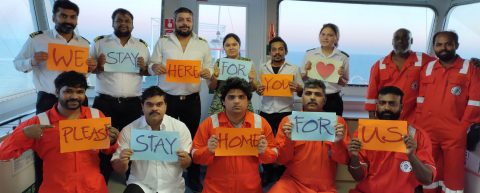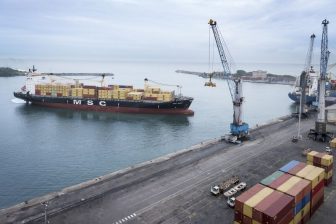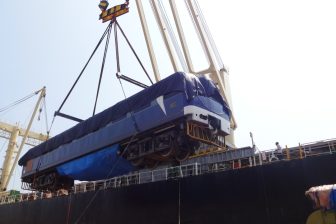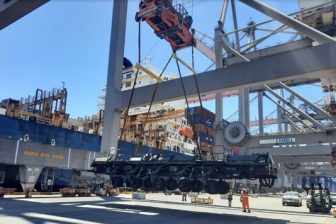
Shipowners provide plan for crew changes worldwide
An alliance of shipowners has come up with a plan for safe crew changes in identified key ports all over the globe. Due to travel restrictions, over 100,000 seafarers are stuck on ships putting enormous strain on their wellbeing and global supply chains. The European Commission has issued guidelines to facilitate the movement of crew and the shipowners are now urging governments worldwide to follow suit.
Lead by CEO Rajesh Unni of Singapore-based Synergy Group, the shipping companies together represent more than 1,500 vessels and 70,000 seafarers. They have developed port viability and seafarer risk assessment plans which they are convinced will mitigate the risk of coronavirus infections during essential crew changeovers.
The companies believe that collective crew changes at identified ports are a feasible short-term aim even in the midst of the coronavirus pandemic if state assistance is made available. They have identified key ports where the collective crew changes can potentially be organised. These ports are Singapore, Houston, Rotterdam, Gibraltar, Jebel Ali, Fujairah, Hong Kong and Shanghai.
The group is now urging governments to take immediate action to enable the resumption of crew changes and identify seafarers as ‘key workers’.
“As well as identifying ports we have also developed a rigorous risk assessment methodology and drawn up action plans that we, as employers of seafarers and organisers of crew logistics, can implement to mitigate the risks of infection,” says Unni, adding that the current situation “really is a time bomb and it’s imperative that governments take action.”
The companies rely on governments to get access to airlines, airports and immigration clearances. Currently, many countries prohibit seafarers to even set foot ashore.
“We understand Covid-19 is a black swan event. But measures aimed at protecting society were never intended to prevent key workers from carrying out tasks essential to the ongoing wellbeing of society. These policies were also not intended to be detrimental to the welfare of key workers such as seafarers. Yet that is exactly what is now happening. The current policy represents a potentially disastrous own goal”, says Unni.
Mental health deteriorating
Every month around 100,000 seafarers are rotated on/off vessels worldwide in accordance with international safety and working hours regulations. But now that the closure of borders and strict quarantine rules are preventing crew changes, thousands of seafarers are stranded at sea for periods far beyond their contracts sparking concerns about their mental health.
“First and foremost, prolonged periods of service onboard will ultimately result in a significant increase in mental wellbeing issues among the seafaring community. Ultimately, such a situation can only jeopardise the safety of the individuals and potentially the vessels they sail on”, says Graham Westgarth, CEO of V.Group.
“Crew mental health deteriorates in these circumstances and they could be prone to errors which can, in extreme cases, lead to loss of life, damage to the environment and property”, adds managing director Keith Obeyesekera of Reederei Nord.
European Commission
The shipowners applaud the European Commission, which has issued guidelines for EU member states to facilitate the movement of seafarers and marine personnel. “These should be adopted not only by EU members but on a global basis”, says Westgarth.
In its guidelines, the Commission says “seafarers should be allowed to cross borders and transit to take up their duties on board cargo vessels and return home after their contracts end.”
The alliance of shipping companies includes D/S Norden, Grieg Star, Reederei Nord, Dynacom, V.Group, Wilhelmsen Ships Service, Pacific Carriers Limited (PCL), Magsaysay, Augustea, Columbia Ship Management, Inchcape Shipping Services and Synergy Group.



